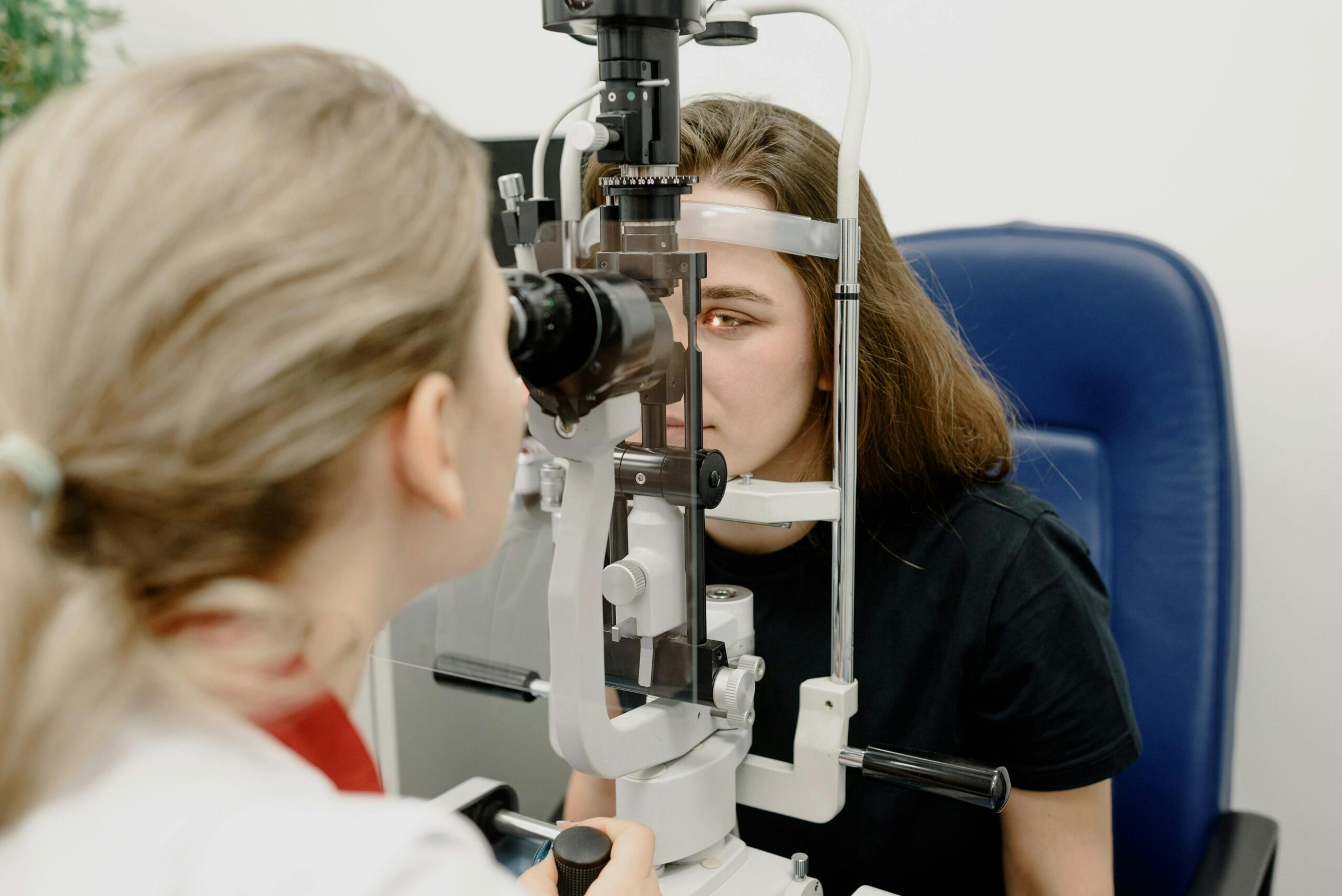Taking care of your eyes is integral for maintaining overall health and quality of life. When you encounter vision problems or need professional diabetic eye care, understanding the differences between an optometrist and an ophthalmologist can help you seek the appropriate specialist. These two professions are often confused, but their roles, qualifications, and areas of expertise are distinct.
What Is an Optometrist?
An optometrist is a healthcare professional who provides primary vision care. Their primary focus is maintaining functional and precise vision. Some of the more prominent services an optometrist offers are:
- Eye Exams: Assessing visual acuity and diagnosing refractive errors, such as nearsightedness, farsightedness, and astigmatism.
- Prescription of Glasses and Contact Lenses: Recommending and prescribing corrective eyewear for clear vision.
- Management of Common Conditions: Monitoring and treating non-surgical eye-related issues, such as dry eye, eye infections, and allergies.
- Detection of Early Disease Symptoms: Identifying signs of chronic or severe eye diseases and referring patients to specialists when required.
These specialists play a key role in routine vision care and maintaining optimal visual performance.
What Is an Ophthalmologist?
An ophthalmologist is a medical doctor who specializes in comprehensive eye care, including surgical interventions and advanced treatment of eye diseases. Becoming an ophthalmologist requires completing a bachelor’s degree, four years of medical school, a year of internship, and three or more years of specialized residency training in ophthalmology. Their expertise covers all aspects of eye health, including services such as:
- Surgical Procedures: Performing surgeries such as cataract removal, LASIK, or glaucoma treatment.
- Treatment of Eye Diseases: Managing complex conditions like macular degeneration, diabetic retinopathy, and corneal issues.
- Comprehensive Eye Care: Offering general vision assessments along with in-depth diagnostic evaluations.
An ophthalmologist’s ability to provide advanced medical and surgical care makes them invaluable when dealing with serious or progressive vision problems.
How They Utilize Services Such as Diabetic Eye Care
Diabetes can significantly impact eye health, potentially leading to serious conditions such as diabetic retinopathy, cataracts, or glaucoma. Both optometrists and ophthalmologists play key roles in providing diabetic eye care. They may even work together when necessary.
Role of the Optometrist
An optometrist is typically the first point of contact for patients with diabetes. Through routine examinations, they can monitor signs of diabetic eye disease, including changes to the retinal blood vessels. If early signs of diabetic retinopathy are detected, an optometrist can provide ongoing monitoring, recommend lifestyle or vision adjustments, and refer the patient to an ophthalmologist for specialized treatment if needed.
Role of the Ophthalmologist
For individuals with diabetes-related complications affecting the eyes, an ophthalmologist specializes in advanced management. This may include providing retinal laser treatments or performing surgical intervention if necessary. Their expertise is key in preventing further damage and preserving vision in advanced stages of diabetic eye disease.
Confer With the Best Eye Specialist for You
Understanding the roles and qualifications of optometrists and ophthalmologists is pivotal when addressing your eye care needs. Each professional brings unique expertise to maintaining and improving vision health. Whether you need a routine eye exam, corrective lenses, or advanced treatment for an eye condition, consulting the appropriate specialist makes sure that you receive tailored care.

